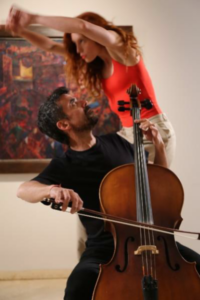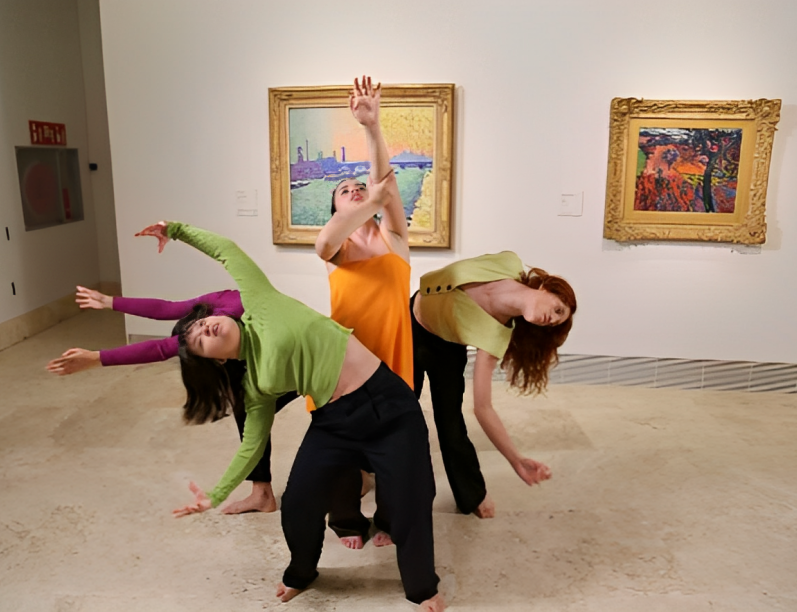The Thyssen-Bornemisza National Museum and Fundación Iberdrola España introduce VIDEO SENSACIONES, accessible culture through non-verbal languages
- It is part of the Museo Fácil cognitive accessibility program, created by the Education Department of the Thyssen-Bornemisza National Museum with the support of Fundación Iberdrola España
- A group of technicians and artists with and without disabilities have participated with a wide experience in recovery, stimulation, inclusion, and accessibility

Vídeo sensaciones eVideo sensaciones is the new project created by the Education Area of the Thyssen-Bornemisza National Museum, within its collaborative accessibility program Museo Fácil, which has the support of Fundación Iberdrola España.
This initiative focuses on the creation of audiovisual pieces that, starting from Spanish Sign Language (LSE) and using non-verbal languages such as music and dance, translate the contents of five works from the collection in an attractive and accessible way for any person.
The result is a set of materials that facilitate the exercise of the right to cultural participation thanks to the creation of content accessible to all. Among these resources, a user guide is available with suggestions for its use in sensory stimulation sessions.

For the materialization of this project, a group of technicians and artists with and without disabilities has met, made up of Aurora Costanza, Beatriz de Paz, Natalia Burgos, and Marta Navarrete, independent performers, creators and teachers linked to inclusive performing arts; Jordi Creus, cellist of the Castilla y León Symphony Orchestra and musician involved in the orchestra’s socio-educational area; Mercedes Pacheco, the teacher responsible for the community dance area of the María de Ávila Conservatory of Dance; the occupational therapy area of the Lescer Foundation, experts in applied sensory stimulation in DCA (acquired brain injury) and the Museum’s Education Area.
A basic element of this work system is the creation of participation networks of different types: between the people involved in its creation, the entities to which they belong, and the institutions that are part of it. Networks that allow listening and encourage the leadership of the communities and people involved, ensuring that the results are built according to the needs and preferences of the audiences for which they are intended.
Video Sensaciones joins the materials, programs, and activities that have been created and promoted through the collaboration of Fundación Iberdrola España with the Education Area. A collaboration that has made programs with a long history such as Hecho a Medida free of charge and has allowed the creation of new programs such as Museo fácil or Dinamo/alternator.
The Museum fulfills its educational mission through different lines of action programmed and executed from the Education Area, among them, those of social action, to which all these programs belong and which, this year, have been recognized with the National Award of Disability Reina Letizia of an inclusive culture. Through these initiatives, more than 2,300 people have been served during the 2022-2023 academic year in 140 activities, with 140 preparatory sessions in which more than 70 entities have participated. Different collaborative projects have also been developed between different entities and institutions.
Iberdrola, committed to society
Iberdrola, since its creation, has been committed to the energy, cultural and social development of the communities in which it is present. In this sense, it represents a further step in this commitment, through the promotion of initiatives that contribute to improving people’s quality of life. One of the main areas of action of the Foundation focuses on the care, maintenance, and promotion of art and culture. In this way, Fundación Iberdrola España collaborates with the museum’s Education Area in its mission to improve accessibility to the collection and its contents.
More information:
https://www.educathyssen.org/historia/video-sensaciones#section-5

